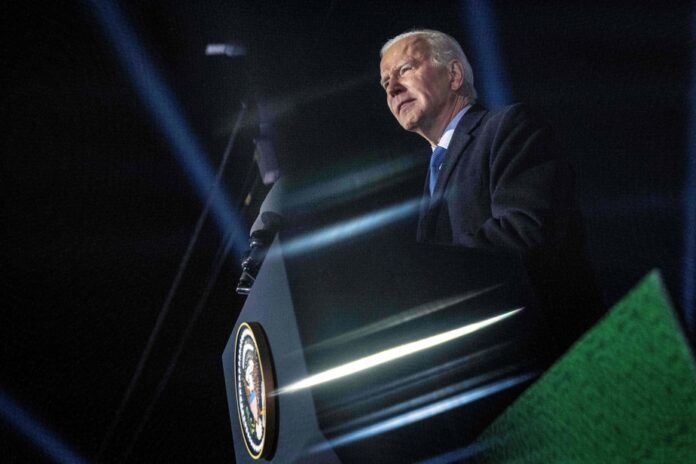The announcement of Joe Biden’s candidacy for a second term as President of the United States in the 2024 election is causing a lot of ink to flow. Fueled by the feeling of a majority of the electorate who believe that the country is not on the right track, the most recent polls show that the incumbent president is vulnerable with an approval rate hovering around 40%.
Plus, Americans really don’t have any enthusiasm for a revival of the 2020 duel between Joe Biden and Donald Trump. Despite his many run-ins with the law, the latter continues to dominate the favor of the Republicans. The possibilities are therefore very real for the holding of a second round.
Among the Democrats, a majority of supporters would like another standard bearer than Biden for the next campaign. His running mate will again be Vice President Kamala Harris, who is unlikely to be popular with the electorate.
Right now, Joe Biden’s chances seem to depend on some key issues like the state of the economy, the impact of his balance sheet, his age and his ability to force the ballot box issue in November 2024. .
We remember the famous quote from an adviser to Bill Clinton, James Carville, during the 1992 presidential campaign: “It’s the economy, stupid!” (It’s the economy, stupid!) As it was 32 years ago, economics is sure to dominate political debates in 2024.
Some numbers don’t look so bad for Joe Biden. More than 12 million jobs were created during his tenure, which is a record, and the unemployment rate is currently at the enviable rate of 3.5%.
Added to this are the bankruptcies of certain banks such as Silicon Valley and the First Republic. Then, the prospect of a recession is always on the horizon. All of these overshadow previous positives and cause concern and uncertainty among the electorate.
The ongoing debate in Congress over the debt ceiling does nothing to build confidence. The majority of Americans disapprove of the Biden administration’s handling of the economy. To reverse this, the president must broaden the debate.
Many observers note that Joe Biden has significant economic, environmental and social successes under his belt. However, these remain largely unknown. Since the start of the mandate, the infrastructure, technology and manufacturing sectors have been the subject of significant investments and bipartisan legislation. We can already see several announcements on these topics over the coming months.
Also, his leadership of the alliance in support of Ukraine in the war launched by Russia demonstrated that the United States has regained its leadership on the world stage.
Still, the highly polarized political climate is not helping to publicize the impact of the Biden administration’s gains in these key areas, a necessity for the incumbent president if he is to effectively counter attacks from his adversaries.
Turning 82 the day after the 2024 election, the oldest president in American history could see his age become a major electoral issue.
Biden recognizes up front that he will be scrutinized in this regard in all of his public appearances. At the recent annual White House Correspondents’ Dinner, the president deftly chose to use humor to address this concern. His health record is solid and he is well versed in the complexity of the files he leads during his interviews and public appearances.
Nevertheless, in 2024, Joe Biden will not be able to bet on a virtual campaign broadcast from his residence as he did in 2020 due to the pandemic. To be seen, therefore, if he will be up to it when the rigors of the electoral campaign present themselves.
Of course, if Donald Trump, who turns 78 in November 2024, is Joe Biden’s opponent, the question of age will be less central.
During his announcement, Biden hammered home that he wants to finish the job started in his first term to ensure prosperity, equity and genuine consideration of environmental issues.
He discusses his concerns for the state of democracy, for restrictions on access to abortion and for the need for better gun control. We remember that these issues greatly influenced the mobilization and exit from the vote in the last mid-term elections.
In 2024, Joe Biden will thus have to articulate his vision for the future in order to make it the question of the ballot box. While taking up this challenge, he will also have to worry about the control of Congress, which will be an essential issue for the good governance of the country during the next mandate.


















